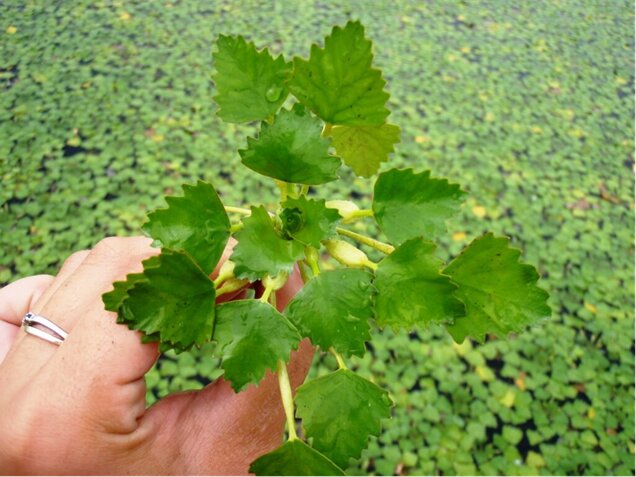Volunteers sought to clear invasive plant from Turner Reservoir
Water chestnuts can overcome a body, cause significant damage
EAST PROVIDENCE — The Department of Environmental Management is once again seeking volunteers to help remove invasive water chestnut plants from the Turner Reservoir in East Providence.
…
This item is available in full to subscribers.
Please log in to continue |
Register to post eventsIf you'd like to post an event to our calendar, you can create a free account by clicking here. Note that free accounts do not have access to our subscriber-only content. |
Day pass subscribers
Are you a day pass subscriber who needs to log in? Click here to continue.
Volunteers sought to clear invasive plant from Turner Reservoir
Water chestnuts can overcome a body, cause significant damage
EAST PROVIDENCE — The Department of Environmental Management is once again seeking volunteers to help remove invasive water chestnut plants from the Turner Reservoir in East Providence.
Two remaining community harvesting events are scheduled: Tuesday, July 11, from 5-8 PM and Saturday, July 15 from 9 a.m.-noon. Although registration is not required, volunteers may register here for updates including if the event is rescheduled due to rain.
A similar effort was undertaken last month by DEM along with the City of East Providence and the New England Interstate Water Pollution Control Commission (NEIWPCC).
According to DEM, the water chestnut is a "virulent aquatic plant" native to Asia that has expanded rapidly in the waterbody. Highly aggressive, it forms dense mats that steal sunshine from and ultimately displace native plant species, alter the habitat for fish and wildlife that depend on it, and interfere with recreational activities such as fishing, boating, and paddling.
Volunteers are needed to hand-pull and collect as many of the invasive plants as possible. This management method has proven to be effective at limiting its spread. The water chestnut (Trapa natans L.) is an annual plant that only reproduces by seed, so removing it entirely will eliminate further spread.
Paddlers who bring their own canoe or kayak, boaters with small trolling motors, or even anglers donning their chest waders can help by plucking plants out of the water. Land-dwelling volunteers can stay ashore and help haul the containers from boats to unload the plants for disposal. Wheelbarrows will be provided to compost the plants on site.
Volunteers will be provided with a bucket and gloves to collect the plants. These events are open to all, including high school students or scouts seeking volunteer hours. No experience is necessary.
First documented in Rhode Island at Belleville Pond in North Kingstown in 2008, invasive water chestnut has crept throughout the state and is currently found in 22 locations. The thorny water chestnut seeds easily attach to waterfowl and wildlife and hitchhike to new locations. One seed can germinate into 15 plants through the growing season in June and early July, and each plant can produce up to 20 seeds by the end of summer, for a total of 300 new seeds.
It is essential that paddlers and lake enthusiasts learn to identify this plant and immediately report any new sightings not listed on the current distribution map by emailing pictures to dem.waterresources@dem.ri.gov. Helpful tips for identify the plant are available here.
DEM has managed water chestnut each year at several locations in the state, with successful annual monitoring and surveillance efforts including another nearby body, Omega Pond on Roger Williams Avenue.






